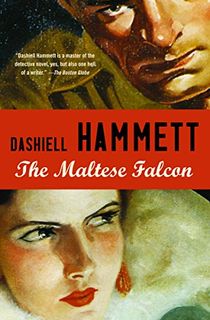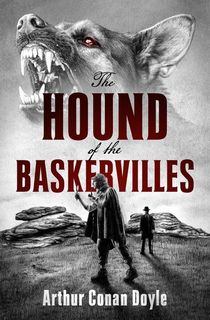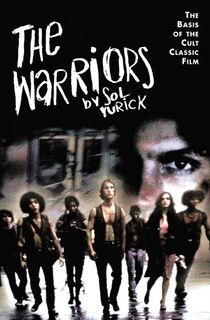When reading a book the pictures we create in our heads are often so rich and vivid, that seeing a movie director's own version on the screen feels like a let-down. But that’s not always the case, as these top-class adaptations prove.
Here are some of the best mystery and thriller adaptations that are not to be missed.
The Maltese Falcon (1941)
Film noir and the great age of hardboiled detective fiction dovetailed to superb effect in the Hollywood of 1930s and 1940s. There are so many terrific adaptations of great books during this period it’s hard to select just one, but—narrowly nudging out Double Indemnity and The Big Sleep—is this John Huston-directed adaptation of Dashiell Hammett’s masterwork.
Humphrey Bogart is tough and seedy as Sam Spade, Peter Lorre memorably creepy as the weasel-ish Joel Cairo and Sydney Greenstreet mesmerizing as the obese and profusely sweating collector Kasper Gutman, whose insane obsession with “The Black Bird” of the title is at the heart of the satisfyingly labyrinthine plot.

The Maltese Falcon
The Hound of the Baskervilles (1959)
The Conan Doyle Estate disapproved of British horror film studio Hammer’s typically gaudy and melodramatic production of Sherlock Holmes’ most famous case, but audiences lapped it up. It’s easy to see why.
Aside from the typical Hammer house style - rich colors, camp gore, and Gothic sexiness—there’s a brilliant performance by Peter Cushing as an impish, theatrical, and dandified Holmes and a solid showing from Andre Morrell as a doughty and by no means stupid Watson.
The Dartmoor settings are excellent, the monstrous hound is suitably ridiculous (it’s actually a Great Dane wearing a mask) and most viewers will find it much easier to forgive the added-in Hammer flourishes (satanic rituals, a gigantic spider) than Sir Arthur’s descendants did.

The Hound of the Baskervilles
Bullitt (1968)
Adapted from Edgar Award winner Robert L. Fish’ novel Mute Witness, British director Peter Yates’ movie has a plot that’s as full of holes as Swiss cheese. The fact that the story makes as much sense as a drunk reading Chaucer aloud, hardly matters, though.
Indeed you barely notice thanks to brilliant performances by Robert Vaughan and Jaqueline Bissett and Steve McQueen at his enigmatic best as a hard bitten LA cop. Throw in one of the greatest movie car chases of all time (they were so much more visceral before CGI) and a killer jazz score from Lalo Schiffrin and you have a classic piece of supercool sixties crime.

Bullitt (originally Mute Witness)
The Warriors (1979)
Way back in 401BC, Spartan soldier Xenophon wrote a taut and thrilling account of a misjudged campaign in Persia he was involved in. Titled The Anabasis it told the story of his mercenary regiment and their perilous journey back to the safety of Greece.
In 1965 Sol Yurick borrowed Xenophon’s plot to tell the story of a New York Street gang, The Warriors.
Walter Hill’s movie follows the structure of Xenophon’s account almost to the letter as the gang attempts to negotiate their way across hostile territory and back to their home turf on Coney Island. Stylish, taut, and just a little bit unhinged, the result is a genuine cult classic that seems to find a fresh audience with every passing decade.

The Warriors
The Vanishing (1988)
Dutch writer Tim Krabbé’s slim novella The Golden Egg was a hit across Europe in the mid-1980s and George Sluizer’s low-budget adaptation is a note-perfect rendition of one of the most frightening tales you’re ever likely to encounter (and that counts double if you suffer from even mild claustrophobia).
The Vanishing is the story of a young man’s obsessive search for the truth behind his girlfriend’s disappearance at a gas station they stopped at during a trip to the south of France. The unflashy direction and mundane settings add to the tension and French actor Bernard-Pierre Donnadieu is utterly convincing as the dull, family-loving psychopath who sits at the center of the story.

The Vanishing by Tim Krabbé
The Silence of the Lambs (1991)
Jonathan Demme’s adaptation of Thomas Harris’ serial killer classic tones down certain aspects of the original for movie audiences (Lecter’s opening encounter with Clarice features much cruder language in the novel, for example), but is otherwise note perfect, from the gritty grimness of the interiors, to the sickly sexual undercurrents.
Jodie Foster is outstanding as the morally conflicted agent constantly battling with feelings of social inadequacy and of course Anthony Hopkins is charming, funny, and utterly repellent as the sociopathic Lecter.

The Silence of the Lambs
Ripley’s Game (2002)
Anthony Minghella’s star-studded and stunningly shot adaptation of Patricia Highsmith’s The Talented Mr. Ripley was rightly garlanded with praise, but this more low-key adaptation of the third in the Ripley series is in many ways more faithful to Highsmith’s worldview.
Besides, if any actor was born to play sinister, sexually ambiguous sociopath Tom Ripley, then that actor is surely John Malkovich. He’s predictably and eccentrically brilliant as an older more established Ripley hell-bent on taking a typically prurient and invasive revenge on a snooty Brit (empathetically played by Dougray Scott) who has condescended to him at a drinks party.
Lilliana Cavani’s movie unfairly bombed at the box office, but it’s definitely worth seeking out.

Ripley's Game
No Country for Old Men (2007)
Cormac McCarthy’s novel is so wonderful—rich with insight, humor, affection, and genuine menace—it’s hard to believe any filmmaker could do it justice, yet the Coen brothers managed it.
Their film may miss some of the loving warmth of the relationship between Sheriff Bell (Tommy Lee Jones) and his wife, Loretta (Tess Harper) that forms a cornerstone of the novel, but it makes up for that in many other ways, not least in the performance of Javier Badem as the ruthless assassin Anthon Chigurh.
Josh Brolin and Kelly Macdonald are also outstanding and Woody Harrelson lights up the screen during his cameo appearance as Carson Wells.






